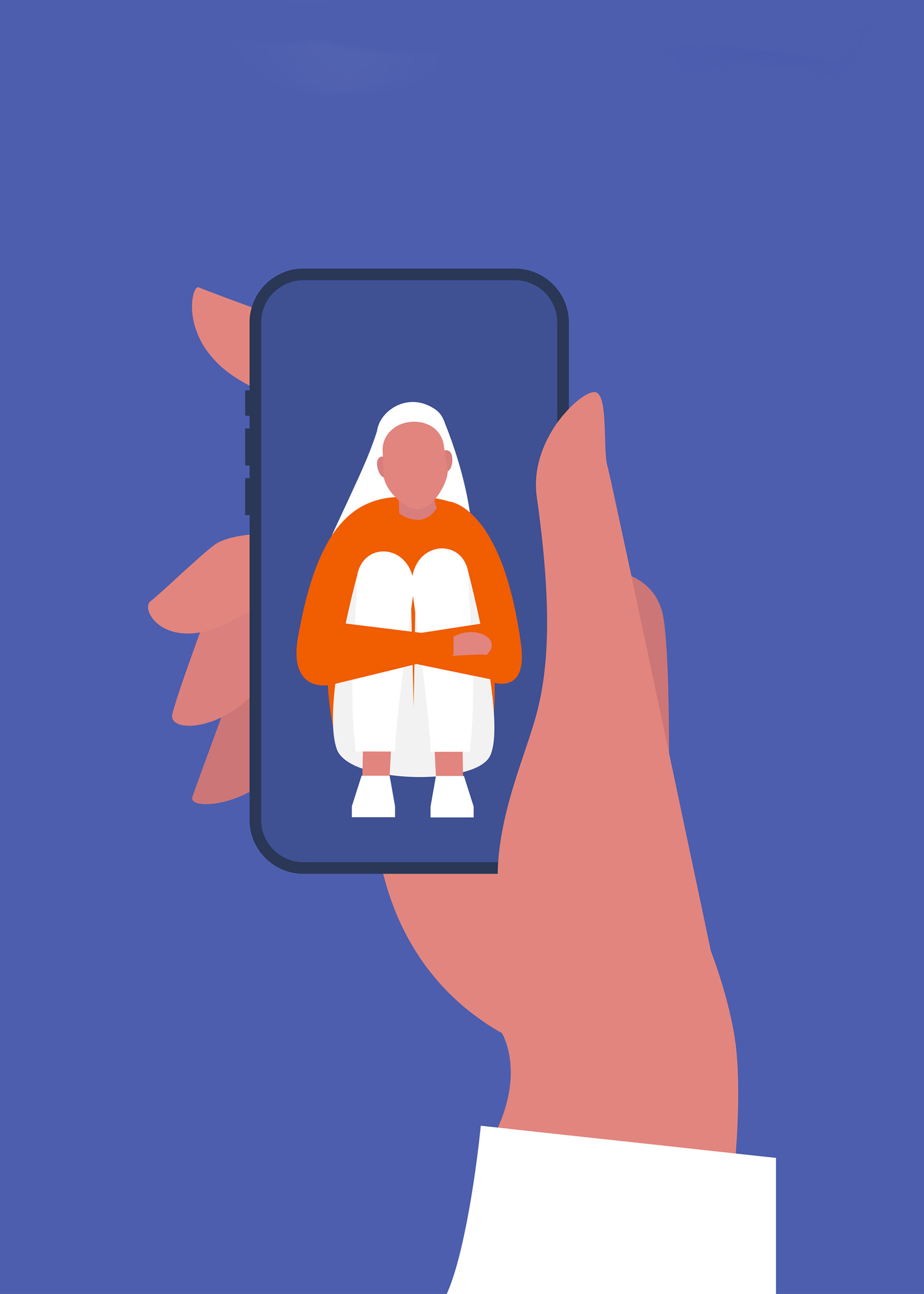Is a mobile app as good as a therapist?
The experts caution against it, but say it’s all in what you believe

During the past two years, mental health apps have grown in popularity.
Illustration by Nadia Bormotova/iStock
For the past two months your mood has been low, you’ve lost your appetite, and you can’t sleep well. Your family is concerned because you are no longer interested in cooking or reading, activities you had previously enjoyed. The stress of the pandemic has changed your routine, and you struggle to balance your remote work, childcare duties, household management, and the care of your ill father. You tried to reach out to a therapist, but after an extensive search online, you found the first available appointment to be months away. A good friend suggested mobile therapy apps, but do they work?
What does the research say?
Mental health apps claim to treat depression, anxiety, and other mental illnesses without therapy appointments. There’s no wait time involved, and every person with a smartphone has immediate access. In addition to their convenience, many apps are free. If this sounds too good to be true, you may be right.
Research looking at randomized controlled trials of mobile app mental health interventions with almost 50,000 patients did not find “convincing evidence” that any mobile app intervention greatly improved outcomes related to people’s anxiety, depression, smoking or drinking, thoughts of suicide, or feelings of well-being. While this sounds unfortunate, this may be related to the study methods in which researchers grouped interventions together that may be completely different. A small trial with a positive effect could thus appear unhelpful if its effects are combined with less helpful interventions.
Treatments work when we believe in them. One study compared the popular meditation app Headspace to a sham version (which included guided breathing but without the active component of mindfulness). Study participants reported improved outcomes (critical thinking and mindfulness) with both active and sham versions, which suggests that the active ingredient may not be in the intervention component itself.
What about computerized cognitive behavioral therapy (CBT) programs for depression? Researchers from the UK studied the effects of the most popular CBT programs (Beating the Blues and MoodGYM), and they also did not find any benefit compared to care as usual in primary care.
This is an excerpt from an article that appears on the Harvard Health Publishing website.
Stephanie Collier is the director of education in the division of geriatric psychiatry at McLean Hospital; consulting psychiatrist for the population health management team at Newton-Wellesley Hospital; and instructor in psychiatry at Harvard Medical School.





